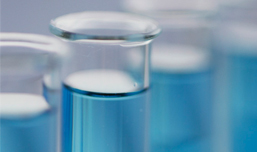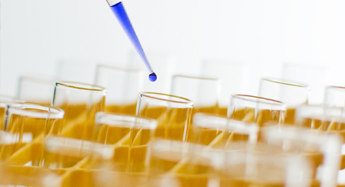Not all Bolar exemptions are the same
September 2013
Background
The 'regulatory review' defence, better known as the 'Bolar exemption' after a similar provision in US law, first came into force in October 2005. Its purpose was to address uncertainty about the scope of application of the experimental use exemption to patent infringement. The uncertainty particularly focussed on whether applicants for generic marketing authorisations, under the abridged procedure, could be liable for patent infringement for conducting the necessary bioequivalence and stability studies.
The Bolar exemption is set out in Article 10(6) of Directive 2001/83/EC (as amended):
10(6) Conducting the necessary studies and trials with a view to the application of paragraphs 1, 2, 3 and 4 and the consequential practical requirements shall not be regarded as contrary to patent rights or to supplementary protection certificates for medicinal products.

Whilst this provision of Directive 2001/83/EC refers to the abridged application procedure for marketing authorisations available to applicants for generic medicines, it does not clarify issues such as, for example, what it means by "trials". Therefore, despite its intention, and although Directives are intended to harmonise European law, the Bolar exemption has created its own uncertainty, with widely diverging implementation between Member States. This is particularly true of its application to clinical trials conducted by innovators.
This article looks at this issue and how it might be remedied by recent developments.
Germany
There are a number of exceptions to patent infringement, not all special to pharmaceuticals. For example, under Section 11 German Patent Act (GPA) the effects of a patent do not extend to activities done in the private domain for non-commercial purposes, individual preparations of a medicine in pharmacies or for experimental purposes only.
Section 11 Nr. 2 GPA states:
“The effects of the patent shall not extend to acts done for experimental purposes relating to the subject matter of the patented invention”.
What constitutes an experimental purpose has already been at issue at the German Supreme Court. In principle, an experimental purpose is given if the infringing act only serves the purpose of acquiring new knowledge about the patented subject matter. According to the German Supreme Court it is not required that the experiments serve exclusively scientific purposes. Also commercial activities are exempted, for example: if a patented substance has been used to find out whether and in which form the patented substance can be used to cure other diseases, clinical experiments designed to acquire new knowledge for a pharmaceutical application and activities which seek to destroy uncertainty about the effect and the tolerance of a patented substance are considered to fall within "experimental purposes". Research tools are not exempted since they are tools for research and not subject to research.
The Bolar exemption was implemented in Germany in 2005 in Section 11 Nr. 2 b GPA, which reads as follows:
“The effects of the patent shall not extend to studies and trials and the resulting practical requirements necessary for obtaining a marketing authorization to place a medicinal product on the market in the European Union or marketing approval for a medicinal product in the Member States of the European Union or in third countries.
This implementation of the Bolar exemption in Germany is more generous than the current implementation in the UK (see below). The provision does not distinguish between marketing authorisations for generic and innovative drugs and applies regardless of whether these authorisations are obtained in Europe or elsewhere.
The provision covers studies and trials and the resulting practical requirements, such as the making, the import, the possession and the use of patent protected substances if and insofar as necessary for obtaining a marketing approval in a certain jurisdiction.
 Recently, the Düsseldorf district court had to deal with the question whether the offer and sale of patent protected active pharmaceutical ingredient by a third party to a generic company is also covered by the Bolar exemption, in circumstances where the supply is in fact restricted to the purposes that are privileged under the Bolar provision. The Düsseldorf district court ruled that the exemption only applies to those who themselves have an interest in obtaining a marketing approval. Consequently supply of actives for tests and studies under the Bolar provision is not exempted, unless the supplier can demonstrate their own interest in the marketing approval. The case is under appeal and pending before the Court of Appeal in Düsseldorf.
Recently, the Düsseldorf district court had to deal with the question whether the offer and sale of patent protected active pharmaceutical ingredient by a third party to a generic company is also covered by the Bolar exemption, in circumstances where the supply is in fact restricted to the purposes that are privileged under the Bolar provision. The Düsseldorf district court ruled that the exemption only applies to those who themselves have an interest in obtaining a marketing approval. Consequently supply of actives for tests and studies under the Bolar provision is not exempted, unless the supplier can demonstrate their own interest in the marketing approval. The case is under appeal and pending before the Court of Appeal in Düsseldorf.
Other European countries have also implemented the Bolar Exemption in terms broad enough to cover innovator drugs and generics. For example, in 2005, Austrian legislation introduced the Bolar exemption into the Patent Act, to the effect that patent protection does not extend to studies and trials, as well as to the consequential practical requirements, as far as they “are necessary for obtaining a permission, authorization or registration for putting pharmaceutical products on the market.”
Other European Member States, such as the Netherlands, Belgium and the UK have taken a narrower approach to the Bolar exemption. However, this may soon change in the UK:
The UK
The UK Intellectual Property Office (UKIPO) and the Medicines and Healthcare products Regulatory Agency (MHRA) published a practice note on what it considers to be the scope of application of the Bolar exemption, as follows:
- The carrying out of chemical and biological synthetic processes suitable for the making, disposal or keeping of the active substance(s) including the manufacture or the import of batches in quantities sufficient to provide material for preparing investigative batches of the medicinal product and to validate the processes to the satisfaction of the competent authorities.
- The development, testing and use of the associated analytical techniques for the above.
- The development of the final pharmaceutical composition and manufacturing processes for the medicinal product to be marketed including the making, disposal or keeping or import of product batches in quantities sufficient to conduct the necessary pre-clinical tests, clinical and bioavailability trials and stability studies of the medicinal product and to validate the processes to the satisfaction of the competent authorities.
- The development, testing and use of the associated analytical techniques for the above.
- The manufacture and supply to the competent authorities of samples of active substances, their precursors, intermediates or impurities and of finished product samples.
- The compilation and submission of a MA or Variation application and application for a MA.
Whilst point 3 expressly includes “trials” as activities covered by the exemption, it has long been the view that this is restricted to those studies (such as bioequivalence studies and stability testing) that are necessary to allow a generic applicant to use the abridged authorisation procedure.
 This view was confirmed when, towards the end of 2012, the UKIPO consulted on whether the Patents Act should be changed to include an exemption from patent infringement for activities involved in preparing or running clinical or field trials which use innovative drugs. The responses to the consultation were overwhelmingly in favour of such an exemption, for reasons including that the changes would bring the UK into alignment with other EU countries. The UKIPO has therefore decided to seek such an exemption, by amendment to the UK Patents Act 1977, to make it clear that the exemption from infringement applies to the activities of preparing or running clinical or field trials involving innovative drugs for the purpose of gaining regulatory approval in any country1.
This view was confirmed when, towards the end of 2012, the UKIPO consulted on whether the Patents Act should be changed to include an exemption from patent infringement for activities involved in preparing or running clinical or field trials which use innovative drugs. The responses to the consultation were overwhelmingly in favour of such an exemption, for reasons including that the changes would bring the UK into alignment with other EU countries. The UKIPO has therefore decided to seek such an exemption, by amendment to the UK Patents Act 1977, to make it clear that the exemption from infringement applies to the activities of preparing or running clinical or field trials involving innovative drugs for the purpose of gaining regulatory approval in any country1.
The amendment is expected to have broad benefits for the UK, by facilitating the conduct of more clinical trials there, with the associated economic benefits and potential early access to new medicines. At an EU level, the changes that will be made to the Bolar exemption in the UK will also bring it into line with Germany, whose Bolar exemption is widely regarded to be industry friendly. This also brings the harmonisation and certainty, which the exemption was originally intended to introduce, a step closer. However, there is still some way to go before the Bolar exemption is applied equally in all EU countries.
If you have any questions on this article or would like to propose a subject to be addressed by Synapse please contact us.


Christoph de
Coster
Christoph is a partner and Head of Patents (Germany) based in our Munich office.

Paul England
Paul is a senior associate and professional support lawyer in the Patents group based in our London office.
"(some) European countries have implemented the Bolar Exemption in terms broad enough to cover innovator drugs and generics."
"European Member States, such as the Netherlands, Belgium and the UK have taken a narrower approach to the Bolar exemption. However, this may soon change in the UK."

